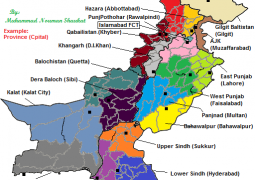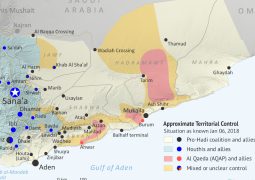Tajikistan Pumps Mobile Phone Companies for Cash With Dubious Fines
A mobile phone operator in Tajikistan has said it is appealing what it considers an illegal tax claim for around $19.5 million.
Tcell, which is controlled by a company that is in turn 60 percent owned by Scandinavian telecommunications giant Telia Company AB, said on January 19 that the claim is based on inexistent revenues. (Telia Company is currently going through the process of divesting itself of its interests in Tcell).
Failure to successfully appeal the claim will place a “very severe financial strain on Tcell,” the company said.
“We are very concerned with the situation which we believe is totally unacceptable,” Emil Nilsson, head of the Eurasia business region at Telia Company, said in a statement.
Telia Company said the claim for 155 million somoni follows a tax audit for the period May 2015 through June 2016 and is equivalent to Tcell earnings for the entirety of 2015.
That the Tajik government is trying to sting a foreign investor for a suspiciously implausible windfall should come as no surprise to anybody familiar with the state of the country’s beleaguered telecommunications sector.
Indeed, according to EuriasaNet.org sources, Tcell is not the only one to getting this treatment. Telia Company should consider themselves lucky.
Informed sources have said that Megafon-Tajikistan, another top mobile phone service provider and daughter company of Russia’s Megafon, is being hit up for 300 million somoni. And Beeline, the brand of the local affiliate of Russia’s Vimpelcom, is said to be facing a fine of around 350 million somoni.
What is particularly egregious about the sudden spurious tax payments is that Tajikistan’s mobile phone companies are widely deemed to be some of the country’s most reliable contributors to the state coffers. (Between 2009 and 2014, officials bestowed Tcell with the “Best Taxpayer of the Year” award on four separate occasions).
The raid mounted by tax inspectors is not limited just to mobile phones companies, however. Hotels, restaurants and other kinds of businesses have recently reported being presented with surprise tax bills. Exasperated business owners say the Tax Committee is adopting a peculiar brand of accounting alchemy to come up with the sums that they say companies owe.
There are a couple of explanations being circulated on the grapevine for this sudden clamor for cash. The presidential administration has said that the state coffers saw 16.8 billion somoni in revenues in 2016, which comes up 5 percent, or around 900 million somoni ($115 million), short of the projected target. A more specific theory is that this sudden windfall is to be used to finance construction of a giant theater that the authorities said in 2015 would cost around $100 million to complete. Going by the figure being cited, this explanation seems possibly about right.
Tajikistan’s mobile phone companies first faced similar fines to these in 2014. That year, Megafon-Tajikistan was fined 95 million somoni, although the company managed to argue through the courts to have that reduced to 20 million somoni. Beeline was pumped for 21.2 million, but paid up only 4.8 million somoni. But yet another company, Vavilon Mobile, was unable to get off the hook and had to pay out a whopping 341 million somoni in installments.
Tajiks love their mobile phones and use them obsessively and typically own several SIM cards, juggling their use in accordance with whichever tariff is most convenient. According to figures collated by telecommunications research outfit Analysys Mason at the end of 2015, the leading mobile phones companies in Tajikistan are, in order of subscriber numbers, Vavilon Mobile (4.6 million), Tcell (2.7 million), Megafon-Tajikistan (1.9 million) and Beeline (1.2 million).
There seems to be almost no limit to the amount of pain the Tajik government sees fit to inflict on the mobile telecommunications sector — a once remarkably bright spot in an economy littered with disasters.
The government some years ago imposed a 3 percent excise tax on communications service and then introduced an 18 percent sales tax on incoming and outgoing calls.
And as a result of a decision adopted earlier this month, mobile phone operators in Tajikistan will from January 20 have to increase the cost of outgoing calls to Russia by 20 percent, up to 1.20 somoni ($0.15) per minute. Only four months ago, the cost of a call to Russia per minute was only 0.69 somoni.
Mobile phone companies have said that this additional cost had been incurred by the fact that calls are now rerouted through the Unified Electronic Communications Switching Center, a network gateway run by state-owned telecommunications company Tojiktelecom, which is in turn owned by the state communications agency. The $50 million gateway is in essence a giant listening post and has been described by the authorities as aimed at “ensuring national and information security.”
Over the years, the state communications agency has repeatedly forced mobile phone companies to hike tariffs for calls, to Russia in particular, in a strategy that few are able to fully comprehend. The only obvious explanation is that this would generate more tax revenue, although the logic is faulty since many people stung by the cost of calling Russia simply get their relatives abroad to call them instead.
- Previous Malaysian PM tells Myanmar to ‘stop the killing’ of Rohingya, as Muslims meet
- Next Tajikistan: Asylum Seekers Stranded in Limbo on Polish Border










